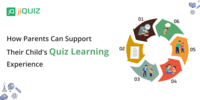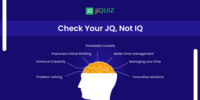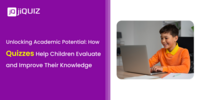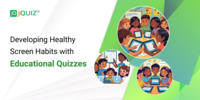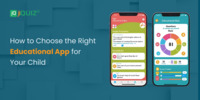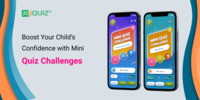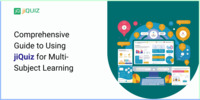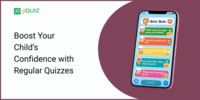- Jun 19, 2025
- Educational
- 407
Share this post on:
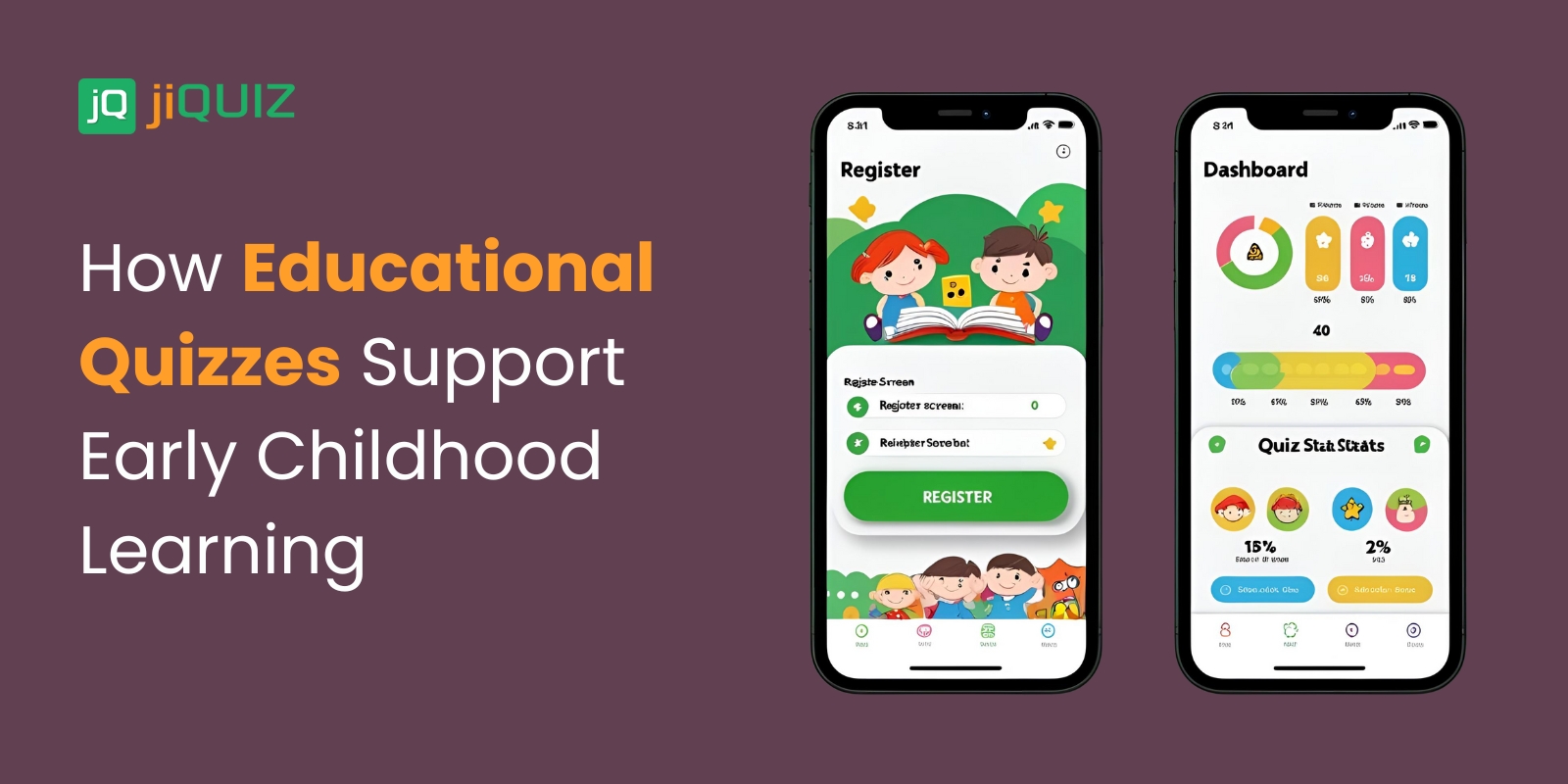
We often think of quizzes as a tool for older students, a way to test knowledge and prepare for exams. But what about the youngest learners? Can educational quizzes truly benefit toddlers and preschoolers? The answer, surprisingly, is a resounding yes! When thoughtfully designed and implemented, quizzes can be a powerful and engaging tool to support early childhood learning, fostering a love of learning and laying a strong foundation for future academic success.
This blog post will explore the incredible potential of educational quizzes in early childhood, diving into the benefits, types, age-appropriate considerations, and practical tips for incorporating them into learning experiences.
Why Quizzes in Early Childhood? Dispelling the Myth of Testing
The word "quiz" can conjure images of stressful exams and pressure to perform. However, early childhood quizzes are not about grades or competition. They’re about discovery, engagement, and reinforcing understanding. The focus shifts from evaluation to exploration. Instead of a test, think of them as interactive learning games or fun challenges.
Here’s why incorporating quizzes, when done correctly, can be incredibly beneficial:
- Reinforces Learning: Repetition is key in early childhood. Quizzes, especially those incorporating visual and auditory elements, help children solidify concepts they’re learning through stories, songs, and activities.
- Encourages Active Participation: Traditional learning can sometimes feel passive. Quizzes encourage children to actively recall information, think critically, and make choices.
- Boosts Confidence & Motivation: Successfully answering a question, even a simple one, offers a sense of accomplishment and motivates children to learn more.
- Identifies Knowledge Gaps (for Educators): While not intended for grading, quizzes provide educators with valuable insights into areas where children might need extra support. This allows for personalized instruction and targeted interventions.
- Develops Problem-Solving Skills: Many early childhood quizzes involve problem-solving elements, requiring children to analyze situations and select the correct answer.
- Makes Learning Fun! Let’s face it, traditional learning can sometimes feel like a chore. Well-designed quizzes, with bright visuals and engaging formats, can transform learning into an enjoyable experience.
Types of Educational Quizzes for Early Childhood
The beauty of early childhood quizzes lies in their adaptability. They’re far from the multiple-choice tests of later years. Here are several formats that work well:
- Picture-Based Quizzes: These are perhaps the most common and accessible. Presenting a question with picture options allows even pre-readers to participate. Examples: "Which animal says 'meow'?" (pictures of a cat, dog, bird) or "Which shape is a circle?" (pictures of a square, circle, triangle).
- Matching Games: Matching pictures to words, shapes to objects, or colors to corresponding hues are excellent for visual learners.
- "What Doesn't Belong?" This format encourages critical thinking and pattern recognition. Present four pictures, three of which share a common characteristic, and ask the child to identify the outlier.
- True/False (with Visuals): Simple statements presented with images can help young children grasp basic concepts. "The sun is cold. True or False?" (accompanied by a picture of the sun).
- Fill-in-the-Blank (with Picture Clues): For slightly older preschoolers, fill-in-the-blank questions can be introduced, with pictures providing visual cues. "A _____ says 'woof'." (picture of a dog).
- Interactive Story Quizzes: Integrating quizzes into storytelling is a fantastic way to maintain engagement. Pause the story and ask questions related to the plot or characters.
- "Simon Says" Variation: Incorporate quiz questions into a "Simon Says" game, adding a layer of physical activity and instruction following.
Age-Appropriateness: Tailoring Quizzes to Developmental Stages
The key to successful early childhood quizzes is ensuring they are developmentally appropriate. What works for a 3-year-old will be different from what’s suitable for a 5-year-old.
- Toddlers (1-2 years): At this age, “quizzes” are more like interactive games. Focus on very simple concepts like colors, shapes, and animal sounds. Use lots of visuals and encouragement. Keep interactions brief and playful. Think of it as “Let’s see if you know what color this ball is!”
- Preschoolers (3-4 years): Preschoolers can handle slightly more complex questions. Introduce matching games, simple true/false questions with visuals, and “What Doesn’t Belong?” challenges. Encourage verbal responses and provide positive reinforcement.
- Kindergarteners (5-6 years): Kindergarteners are often ready for fill-in-the-blank questions (with picture clues), simple word recognition, and more nuanced “What Doesn’t Belong?” scenarios. You can start to introduce some basic problem-solving elements.
Designing Effective Educational Quizzes: Best Practices
Creating engaging and beneficial quizzes requires careful consideration. Here are some best practices:
- Keep it Short and Sweet: Young children have short attention spans. Limit quizzes to 5-10 questions.
- Use Bright, Engaging Visuals: Colors, pictures, and animations are essential for capturing and maintaining attention.
- Positive Reinforcement is Key: Focus on encouragement and praise, regardless of whether the answer is correct or incorrect. Avoid any negative language.
- Make it Interactive: Allow children to manipulate objects, click on images, or verbally respond to questions.
- Relate to Prior Learning: Connect quiz questions to concepts children have already been exposed to.
- Incorporate Movement: Get kids moving! Ask them to jump, clap, or point to the correct answer.
- Keep it Playful: Remember, it’s a game! Maintain a lighthearted and fun atmosphere.
- Consider Different Learning Styles: Incorporate visual, auditory, and kinesthetic elements to cater to different learning preferences.
- Use Technology Wisely: Numerous apps and websites offer educational quizzes for young children. However, ensure the content is age-appropriate and aligns with learning objectives. Screen time should always be moderated.
Beyond the Screen: Incorporating Quizzes into Hands-On Activities
While digital quizzes can be useful, don’s underestimate the power of hands-on, non-digital alternatives:
- Sorting Games: "Can you sort the red blocks into this pile and the blue blocks into that pile?"
- Shape Hunts: "Let's find all the circles in the room!"
- Animal Sound Matching: Play an animal sound and have the child point to the corresponding picture.
- Color Scavenger Hunts: "Find something that is yellow!"
- Story-Based Props: Use puppets or toys to act out a story and ask questions about the events.
Conclusion: Unlocking the Potential of Playful Learning
Educational quizzes, when thoughtfully designed and implemented, can be a powerful tool to support early childhood learning. By shifting the focus from evaluation to exploration and prioritizing playfulness, we can create engaging experiences that foster a love of learning and build a strong foundation for future academic success. So, let's ditch the traditional notion of quizzes as tests and embrace their potential as a fun and interactive way to unlock the incredible learning potential of our youngest learners!

